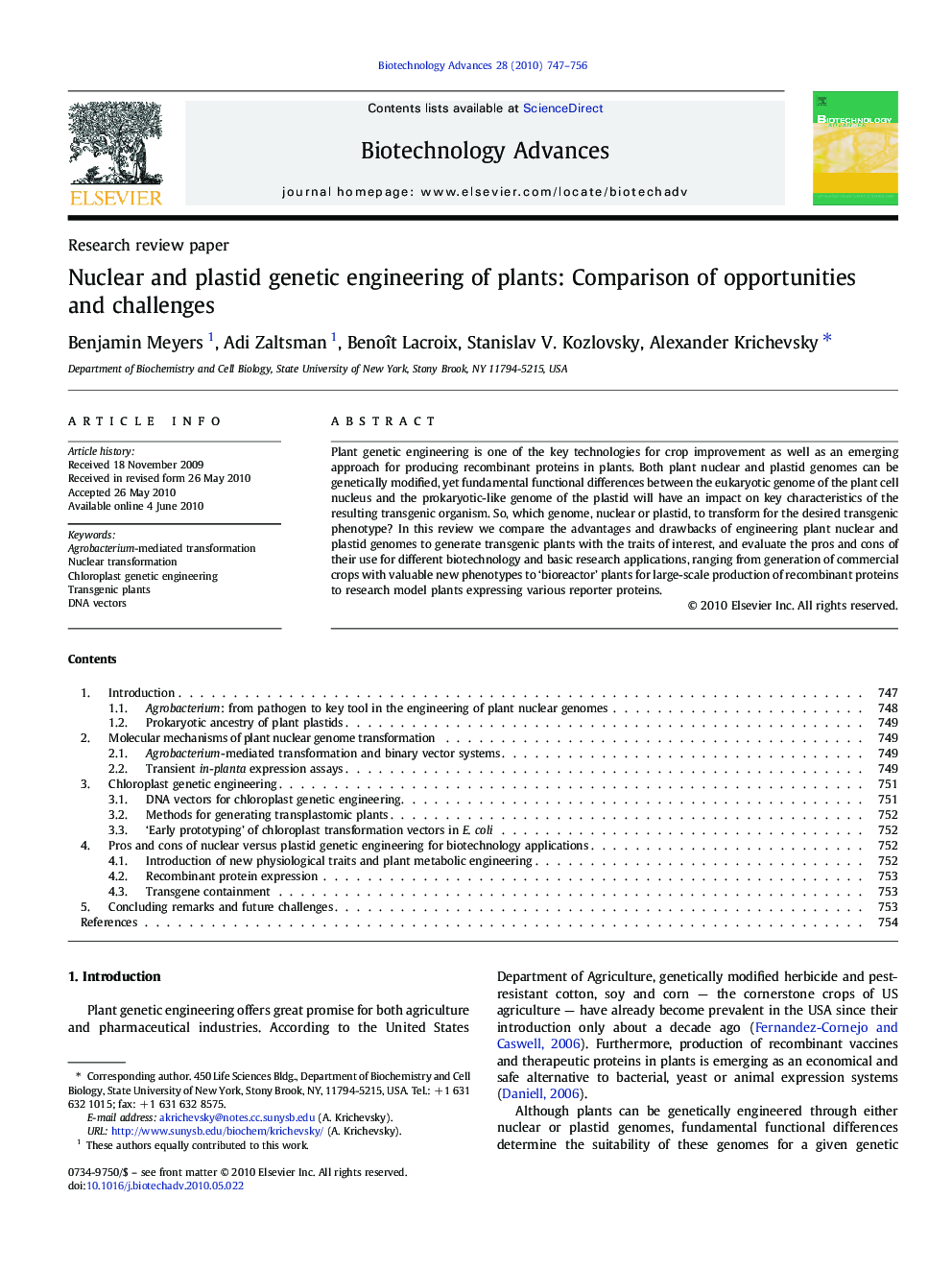| Article ID | Journal | Published Year | Pages | File Type |
|---|---|---|---|---|
| 14421 | Biotechnology Advances | 2010 | 10 Pages |
Plant genetic engineering is one of the key technologies for crop improvement as well as an emerging approach for producing recombinant proteins in plants. Both plant nuclear and plastid genomes can be genetically modified, yet fundamental functional differences between the eukaryotic genome of the plant cell nucleus and the prokaryotic-like genome of the plastid will have an impact on key characteristics of the resulting transgenic organism. So, which genome, nuclear or plastid, to transform for the desired transgenic phenotype? In this review we compare the advantages and drawbacks of engineering plant nuclear and plastid genomes to generate transgenic plants with the traits of interest, and evaluate the pros and cons of their use for different biotechnology and basic research applications, ranging from generation of commercial crops with valuable new phenotypes to ‘bioreactor’ plants for large-scale production of recombinant proteins to research model plants expressing various reporter proteins.
